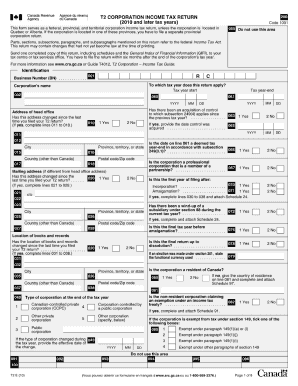
In Quebec, no legislation exists specifically to regulate the offer and sale of a franchise; however, the Civil Code of Quebec:
- Imposes a fundamental legal duty of good faith that: ...
- Requires franchisees to inform themselves of any pertinent information and to conduct proper due diligence of the franchise opportunity such as by hiring counsel and accountants to provide advice.
- Obliges a franchisor not to encroach upon or compete with franchisees.
- Imposes a duty to protect the brand and the franchised network.
Does a franchise agreement need to be registered?
Need for Franchisor Registration Indian laws do not mandate the franchisor to be registered with any professional or regulatory body before entering into an agreement for this purpose.
Are franchises regulated in Canada?
Franchising in Canada is regulated at the provincial level by six provinces: Alberta; British Columbia; Manitoba; New Brunswick; Ontario; and Prince Edward Island (“PEI”) (the “Disclosure Provinces”).
What are the legal requirements for a franchise?
Generally, the offer and sale of franchises find legal basis in laws such as:The Indian Contract Act, 1872.The Foreign Exchange Management Act, 1999 (FEMA).The Competition Act, 2002.The Trademarks Act, 1999.The Copyright Act, 1957.The Patents Act, 1970.The Design Act, 2000.The Income Tax Act, 1961.More items...
Do you need an FDD in Canada?
Did you know that six Canadian provinces have legislation that regulate franchising? In those provinces it is mandatory for a franchise disclosure document (FDD) to be provided before entering into any agreements related to the franchise or paying any consideration related to the franchise, with some exceptions.
Which provinces have franchise legislation?
The provinces of British Columbia, Alberta, Manitoba, New Brunswick, Ontario and Prince Edward Island have each enacted franchise disclosure legislation.
How do I register a franchise in Canada?
Franchising in CanadaYou'll need to provide prospective franchisees (including renewing or resale franchisees) with a franchise disclosure document (FDD) 14 days before they sign your franchise agreement or pay any money to you.You can't use your FDD from another country.Your FDD must be customized for each franchisee.
Can anyone start a franchise?
Before you can get your operation going, you'll need to have enough initial capital as well as an overall net worth before even considering starting a franchise. Unless you're independently wealthy, you may have to borrow money. Start with commercial banks since they fund many types of franchises.
How do I turn my business into a franchise?
How to Franchise a BusinessMake sure your business is ready to franchise.Protect your business's intellectual property.Prepare a financial disclosure document (FDD)Draft a franchise agreement.Compile an operational manual for franchisees.File or register your FDD.Set a strategy to achieve your sales goals.
How do you register a franchise?
Below are some guidelines on how to follow each of these steps in opening your own franchise.Online Self-Test. ... Set your budget. ... Choose a franchise industry. ... Choose a franchise. ... Apply to find out more information from the franchisor. ... Sign the franchise agreement. ... Sign lease agreement and pay rental deposit.
How do I get out of a franchise agreement in Canada?
For franchisees wishing to get out of the franchise there is another avenue, one that franchisees commonly pursue in Ontario. It is the “rescission” (meaning cancellation) avenue. A rescission cancels all franchise contracts on the basis that the franchisor failed to deliver a franchise disclosure document.
What is a franchise disclosure document Canada?
A franchise disclosure document is a written resource designed to provide franchisees with vital information that they need in order to make an informed decision about investing in a franchise opportunity.
What are franchisees usually liable for?
Franchises offer limited liability for the franchisee from any legal suits brought by customers or employees. This means that the franchise owner's personal assets cannot be affected by the outstanding debts of the franchise.
What are franchisees usually liable for?
Franchises offer limited liability for the franchisee from any legal suits brought by customers or employees. This means that the franchise owner's personal assets cannot be affected by the outstanding debts of the franchise.
What are the rights of a franchisee?
The franchisee holds the right to the franchisor's loyalty, good faith and fair dealing, and due care in the performance of the franchisor's duties. The franchisee is also entitled to impose reasonable restraints upon the franchisor's ability to require changes within the franchise system.
How do I get out of a franchise agreement in Canada?
For franchisees wishing to get out of the franchise there is another avenue, one that franchisees commonly pursue in Ontario. It is the “rescission” (meaning cancellation) avenue. A rescission cancels all franchise contracts on the basis that the franchisor failed to deliver a franchise disclosure document.
What is a franchise law?
The franchise laws are a combination of federal and state laws that govern the registration, offer and sale of franchises, and the legal relationship between franchisors and franchisees.
What is the obligation of a franchisor to disclose to a potential franchisee?
Under Quebec law, and contrary to other Canadian jurisdictions, the franchisor is not subject to specific and regulated “franchise disclosure obligations.” Rather, the franchisor is bound to disclose to the potential franchisee everything that is necessary for the future franchisee to provide an “informed consent” [1]. This implies the communication of all key information such as, for example, the draft franchise agreement, the franchise history, key information on the network, some general financial information, pending Court litigation (if they are likely to have an effect on the franchise network) and other corporate information. However, the notion of “informed consent” is even broader. If the potential franchisee requires, they may also imply a duty of the franchisor to communicate internal memos pertaining to the potential franchisee’s personal situation, projected business location, and even psychological tests [2].
What should a potential franchisee be accompanied by?
To ensure compliance with the legal obligations, a potential franchisee should be accompanied by a franchise specialist (whether a legal professional or an accounting professional). Very often, at the outset of a business venture, a franchisee seeks to spare and save as much money as possible. Not retaining the services of a franchise specialist (mainly for economic concerns) is, by far, the most typical and costly pitfall awaiting any potential franchisee. For instance, many unsuccessful franchisees realize, after a few months into the franchise operation, that they were not “sold” the concept they were expecting. For example, the franchisor may not truly have a sophisticated network, the technical and operational support may be defective, etc. Most franchisees do not know that after a certain time limit, if they have not made their claims known or decided to ask for annulment of the franchise agreement, the Courts will not allow such annulment because they will consider that, by their actions, the franchisee has “confirmed” the agreement. Being advised by an expert at the very early stages of their business endeavour will allow the future franchisee to access relevant information, truly understand the extent of their legal and business obligations, and sometimes realize that the projected franchise business contemplated is not necessarily suited to their needs.
Is Quebec a franchise jurisdiction?
Quebec is one of the only Canadian legal jurisdictions without a specific franchise legislation. The core legal body lies with the Civil Code of Quebec and Court precedents. In this context, a potential franchisee may wonder what is the extent of their legal duties, in particular, at the precontractual stage (meaning before formally entering into the franchise business venture): What are the franchisor’s legal disclosure obligations? To what extent do the franchisee’s “due diligence” duties go? What use can they make of the trade and brand names? What are the main pitfalls? We intend to cover these topics in the following article, while also providing practical tips.
How does the CCQ govern franchising?
Second, the CCQ governs franchising through its provisions relating to “contracts of adhesion.” A contract of adhesion is a contract in which the essential stipulations were imposed or drafted by one of the parties and were non-negotiable. To the extent that franchise agreements fit this definition, they are subject to certain legislative checks imposed to protect the adhering party, in this case the franchisee. Thus, such agreements must be drafted in clear language and any ambiguity will be interpreted in favour of the franchisee. Further, external clauses that were not expressly brought to the attention of the franchisee before signing risk being found null in Québec courts. But clarity and express mention are not enough: clauses that are found to be “abusive” or excessively onerous may also be found null, or see their obligations reduced by the courts.
How many persons must be employed to form a francization committee?
An enterprise employing 100 or more persons must form a francization committee. Where necessary, the committee will have to devise a francization program and supervise its implementation. Certificates of francization will be issued in each case where the OQLF is satisfied with the enterprise’s linguistic situation.
What factors should be considered when selecting a foreign entity?
In selecting the most appropriate form, a foreign entity should consider key factors including: tax issues, the circumstances of the investor, and the nature of potential liabilities associated with the business to be conducted.
When did the QBCA come into effect?
The QBCA, which came into effect in 2011 and modernized Québec’s corporate laws, applies to all businesses incorporated under Québec law. Its enactment introduced important changes to the way business is done in Québec, which distinguish it from other jurisdictions and demonstrate the province’s commitment to being a business-oriented jurisdiction. The following three points highlight some of the QBCA’s most salient features in terms of flexibility.
Can corporations be continued under the QBCA?
The advent of the QBCA brought with it the possibility of continuance; that is, corporations constituted under foreign laws, such as the C BCA or the corporate statutes of other Canadian provinces or territories, may now be continued as corporations under the QBCA, all with relative ease. The reverse also holds true. This innovation increases Québec’s appeal as a jurisdiction open to corporate reorganizations that include amalgamations, and reinforces its outward-looking orientation.
Can a foreign corporation have a branch in Canada?
Depending on the laws in the home jurisdiction, the foreign parent might then avoid direct liability for actions of the Québec operation. Foreign corporations doing business in Québec through a branch are subject to certain tax obligations in Québec and in Canada, such as producing tax returns. In particular, the foreign corporation would be subject to branch tax and could also be subject to withholding taxes in respect of certain payments that it receives from Canadian taxpayers.

Forms of Business Organization
Branch Versus Subsidiary Operation
Québec Incorporation
Differences of Language Relevant to Business Organizations
Partnerships and Joint Ventures
Franchising Law
- Unlike certain other provinces, Québec has no franchise-specific legislation. However, this form of business organization is not unregulated; the general provisions of the CCQ and the Charter of the French Language (Charter) apply. This section will focus on three important considerations under the CCQ; for the impact of the Charter, see “TheCharte...
The Charter of The French Language
Firm Name in French
Common Business Applications in French
Language as A Condition of Employment